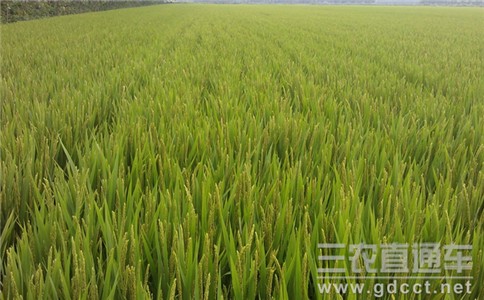Pilot projects to support village-level collective economic development will be extended to 13 provinces
The Ministry of Finance issued the "guidance on supporting the pilot Project of Village-level Collective Economic Development" (hereinafter referred to as the "guiding opinion"), confirming that the central finance selected 13 provinces to carry out pilot projects to support village-level collective economic development in 2016, and made clear the pilot contents such as exploring the realization form with the effective use of resources as the main content, and exploring the realization form with the provision of services as the main content.

It is reported that the 13 pilot provinces are 11 new provinces in Hebei, Liaoning, Jiangsu, Anhui, Jiangxi, Shandong, Henan, Guangdong, Guangxi, Guizhou and Yunnan on the basis of the original two pilot provinces in Zhejiang and Ningxia.
The "guidance" expands the pilot scope of supporting the development of village-level collective economy, and puts forward a series of reform measures, which will help to strengthen the strength of village-level collective economy, activate production factors, and promote the growth of farmers' income. " Bai Jingming, deputy director of the Finance Department of the Ministry of Finance, said.
The guidance clearly defines the main contents of the pilot project to support the development of village-level collective economy. In exploring the realization form with the effective use of resources as the main content, the "guiding opinions" proposes to support the village collective to run land joint-stock cooperatives in accordance with the principles of voluntary membership, freedom of withdrawal, benefit-sharing and risk-sharing, encourage and guide village collective members to convert their shares into the co-operative with the right to land contractual management.
Land joint-stock cooperative is a new type of cooperative management model, farmers take shares in the cooperative with the right of contracted management of rural land, turn the right of contracted management of land into equity, and the land is cultivated uniformly by the cooperative. Farmers can also enjoy dividends in addition to labor income. "the development of land joint-stock cooperatives is conducive to the appropriate scale operation of agriculture, improve labor productivity and land output rate, promote agricultural efficiency and increase farmers' income." Bai Jingming said.
In the aspect of exploring the realization form with the provision of services as the main content, the "guidance" proposes to support the village to set up service entities such as agricultural production and management cooperatives and labor cooperatives, to provide paid services such as processing, circulation, warehousing and labor services for all kinds of market entities, especially grain production and operation subjects, so as to promote the extension of agriculture from production to prenatal and postnatal production. To achieve the integrated development of primary, secondary and tertiary industries at a higher level and on a larger scale.
"support the village collective to establish a service entity, so that the village collective has the ability of public service, and can promote the formation of a new agricultural social service system while developing and strengthening the village-level collective economy." Bai Jingming said.
In exploring the realization form with property management as the main content, the "guidance" proposes to encourage village collectives to develop and utilize land such as land for collective management in accordance with the requirements of overall land use planning and urban and rural construction planning. we will build property projects according to our capacity and develop the property economy.
Bai Jingming believes that with the development of the rural collective economy and the improvement of the degree of rural industrialization, the village collective owns a certain number of real estate and public facilities, such as office rooms, schools, warehouses, auditoriums, and so on, and carries out leasing operation and even new properties, which is conducive to promoting the development of village-level collective economy.
In exploring the realization form with mixed operation as the main content, the "guidance" proposes to encourage village collectives to participate in farmers' specialized cooperatives and sound industrial and commercial enterprises with collective asset resources. Villages with conditions can explore the establishment of funds to support the development of collective economy at the village level to maintain and increase the value of collective assets.
What is worth paying attention to is that the "guidance" makes it clear that the central finance supports the local pilot work by way of award and replacement, that the provincial financial departments should increase their support, and that cities and counties should also give necessary support. The pilot funds are mainly used to subsidize the encouragement of land transfer, scattered land renovation, development for agricultural services, property management, etc., and shall not be used for supporting projects, repaying rural debts, building buildings and buildings, purchasing means of transportation and communications, and issuing personal subsidies.
- Prev

Experiment on selection of Special Fertilizer for Yangfeng Super Rice
Experiment on selection of Special Fertilizer for Yangfeng Super Rice
- Next

The utilization rate of chemical fertilizer in China has increased by 2.2%.
The utilization rate of chemical fertilizer in China has increased by 2.2%.
Related
- A course of planting techniques and methods on how to grow carrots
- How to plant the latest tulips?
- Is it better to pick tea in the morning or in the afternoon? When is the best time for tea to be picked? what is the third or fifth tea?
- Launch Yuanxiao Happy combination Haocha + Tea Yuan healthy Taste
- Penghu Tourism "Fireworks 20 Parade with You"
- 2022 West Lake Happiness holds "Digital Revitalization Voucher" and draws iphone13 and laptop.
- Banqiao Fuzhou social houses are designed to change start-up combined with police elimination to create a safe and livable environment
- The convenient measure of "mechanical weeding" in Xinbei has been abused and the Agriculture Bureau has imposed heavy penalties on the illegal land consolidation.
- Changgeng University Joins Hands with Four Memory Factories to Rescue Memory Talent Shortage
- The list of Taiwan's top 100 MVP managers is listed by the Director-General of the Farmers' Association of Sanxia District.

